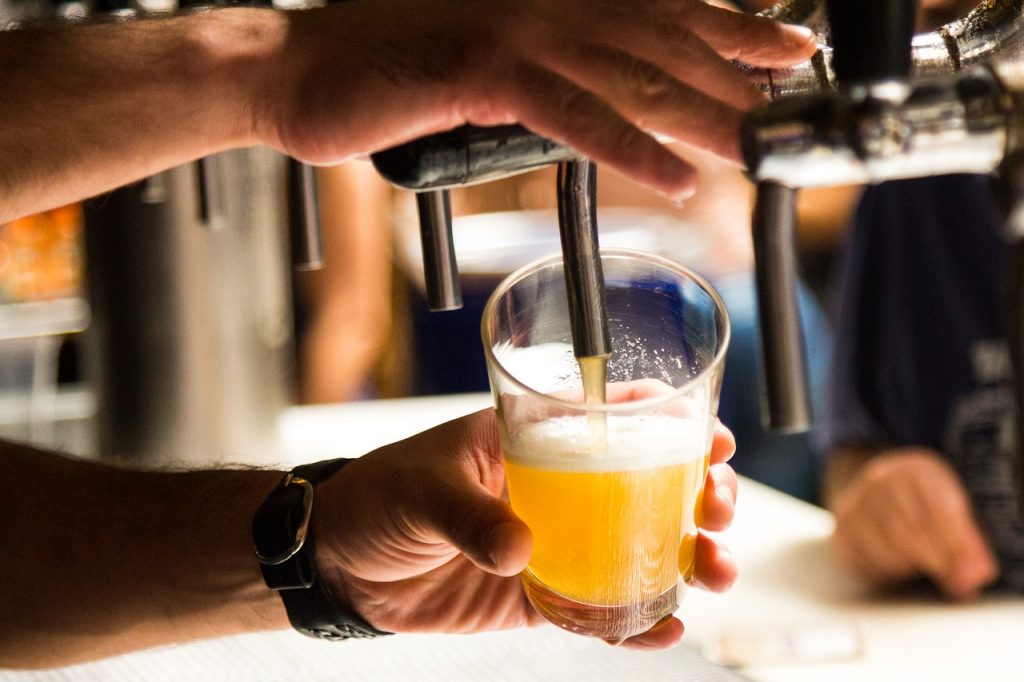With the Tokyo Olympics and the Rugby World Cup approaching, we felt it was only necessary to make a comprehensive list of the essential travel tips for Japan that you really should know. Hopefully, by following these recommendations, you can not only have an enjoyable time in Japan, but it will help you get a better insight into Japanese society and the day to day life of several million people.
1. Don't be overly loud in public places

Japan is a pretty quiet place, and can be especially quiet in public places such as shrines, temples, or trains. Trains in general are one of the quietest places to go, even during rush hour, there will hardly be anyone talking on them (with the exception of school kids). It’s important that if you do want to talk to someone, that you do it in a quiet and respectable tone as to not disturb even just people who talk a lot louder than the social norm, making everyone in the tight space a part of their conversation.
2. Don't expect everyone to speak English
The first language of Japan is Japanese (duh) so don’t just randomly start talking to someone in English and expect for them to understand. Although many people have learned it in school, their skills are likely to still be very limited. Some of the locals might even be afraid to talk to you – just because they don’t know any English. There are even bars and restaurants which have a ban on foreigners, not because the owners are racist, but they don’t have any English skills or English materials at their establishment, and therefore will not be able to serve you.

If you want to speak to a local in English, it would be best to ask this in Japanese first.
‘Sumimasen. Eigo Hanasemasu ka?’ which translates to – Excuse me, do you speak English?
To which they can reply with ‘Hai’ or ‘Hai, Eigo Hanasemasu’ which means Yes, I do. Or they could reply with ‘iie’ or ‘Gomenasai, Eigo hanasemasen’ which means I don’t.
If they don’t speak english, then it would be polite to say ‘Ah, sumimasen‘, bow, and walk away.
3.Don't cross the road whenever you feel like it.

Although in big cities, people walk in the middle of the side streets where cars are infrequent, however, On streets where a crosswalk is located, people don’t cross unless the crosswalk has the little green person has been illuminated – even in the dead of night when no cars around. This is a fine example of the order of Japanese society, and the values of the culture. Although there is no real punishment for crossing whenever or where ever you please, it’s still not accepted in Japanese culture.
4. Stop to eat/drink.
Probably the hardest thing to find in Japanese cities and rural areas alike are public garbage bins. If your out on the streets, you will usually only find garbage bins at convenience stores or in public toilets – and recycling bins out front vending machines as well. But the reason why it’s so hard to find them outside their set places is because it’s to discourage littering funny enough.
People in Japan know that they can eat and drink at the convenience store and dispose of their packaging there. It is also considered to be rude to eat/drink and walk because people will get the suspicion that you will litter.

So if you get some food from the convenience store, eat it there, or eat it when you are back in your hotel room, apartment or house.
Are you planning a trip to Japan soon? Then you really should consider purchasing a JR Rail Pass, especially if you are planning on hitting all the major Tourist cities like Tokyo, Kyoto, Osaka, Hiroshima, and Sapporo.
The JR Rail Pass makes getting around the country easy, and can save you several hundreds in travel expenses. All you need to do is just show your pass at the ticket gate, and you have access to any and all JR rail lines across the country, and not just the standard commuter trains, but luxury trains, and even the world famous Shikansen (Bullet Train). A JR Rail Pass is an essential item for any visitor to Japan. Buy your pass today by clicking here now!
5. Never Drink and Drive

Some countries, like UK, Canada, USA, NZ etc, allow for a certain amount of Alcohol to be in the blood system, and still be allowed to drive. However, in Japan, you can’t have ANY alcohol in your system and operate a vehicle. If you get caught with as little .0001mcg of alcohol in your system, you can face enormous fines. If you’re a foreigner and get caught do this, you might even get deported! So if you go out drinking, make sure you have a sober driver, or find alternative methods of getting home. Remember, Drink Responsibly.
If you do go out drinking, make sure that you have an alternative route home, whether it be public transport or via a taxi, it’s not not worth the risk of driving if you have had any alcohol whatsoever.
6. Don't Stand in the Middle of the Escalator
Depending on where you go in Japan, there are different sides to stand on while taking the escalator. Some cities, it’s the left, and some cites, it’s the right. Just go with what everyone else is doing. People often use the other side to quickly walk up the stairs because they are in a rush, so stand clear to avoid people from getting pissed at you. If you want to stand, stand where everyone else is standing. If you want to walk, walk in the lane that’s unobstructed.

7. Take your shoes off when going into houses

Many Japanese houses and apartments have special entrance ways to take your shoes off before entering the household. These are typically characterized by a stone or tile flooring, while the other areas of the house are wooden. There will also be a step and likely a shoe box as an extra reminder. Taking your shoes off in Japanese house is an utmost priority, as traditionally, feet are considered to be quite dirty, and many people would rather you not track dirt through their house.
So remember, take you shoes off before entering peoples houses! You may also be required to take shoes off in some castles, ryokans, or restaurant – but it will be clearly marked if required.
8. Get a Prepaid Train Card
Prepaid Train Cards are a godsend. They significantly reduce the amount of time at a train station normally spent trying to figure out the costs of your train trip in order to buy a ticket. You instead just tap the card on the gate when you arrive at your station, and again when you reach your destination, and the amount will be withdrawn from the card. If you are low on funds on the card, you can top up at all the stations, both inside and outside the station gates. Gone are the days of looking at the big confusing map of the trains lines.

all you have to do is go to one of those automated ticket machines, find the prepaid card button (which will vary in name depending on region), top purchase it for 2000JPY, 500 of which will be refunded to you when you return your card at the end of the trip (Return to a JR Station), and the rest will be a pre-load on your card, so you can use it right away.
9. Get a Coin Purse

As Japan is a cash based society, you can expect to accumulate a lot of coins and quickly. If you don’t separate your coins from your cash, then you can expect your wallet to get heavy very fast. You can even put your train cards in them and they will scan through the purse without being removed.
Coin purses can be bought at Daiso (A discount chain store) for about 300JPY and come in a variety of shapes and designs to suit everyones personality.
10. Dress in Modest and Appropriate Clothes
Dressing appropriately and modestly is key to integrating into Japanese society. Don’t go to shrines or temples in swimwear, don’t go out in town in your pajamas. Just wear normal street clothes if you go out in public places, it will save you a lot of fuss from the locals and other tourists. The most important element for choosing clothing is to make it as non-offensive as possible, especially since Japan has so many sacred and religious places.

11. The Power of Business Cards

Symbols go a long way in Japan. In situations where you exchange person details in the form of a business card, it’s important to Japanese culture that you accept the other persons business card with two hands, and to give your own card with two hands as well. After receiving another persons card, make sure you inspect the card carefully, reading the details on both sides. A business card is an extension of ones self in Japan, so treat the card with care. Make sure you place their card in your wallet, or card holder out of respect for the other person.
12. Don't leave reservations to the last minute.
Travelling Internationally, you have to be smart with your decisions. You really should book your experiences and services well in advance to ensure the best deals and availability for your ideal travel dates and itinerary.
Recommended Flight Booking Times: 3+ Months in advance
Recommended Hotel Booking Times: 2-5 Months in Advance
Recommended Tour Booking Times: 1-2 Months in Advance

That’s it, you reached the end of this list. We hope that we helped you become a more aware tourist and hope that your travels to Japan are smooth and problem free. If we at Off The Track Japan can help you out however necessary and if you need some travel advice, feel free to contact us either via the contact us page, or use the live chat function during office times and we will get back to you as quickly as we can. Thank you!

